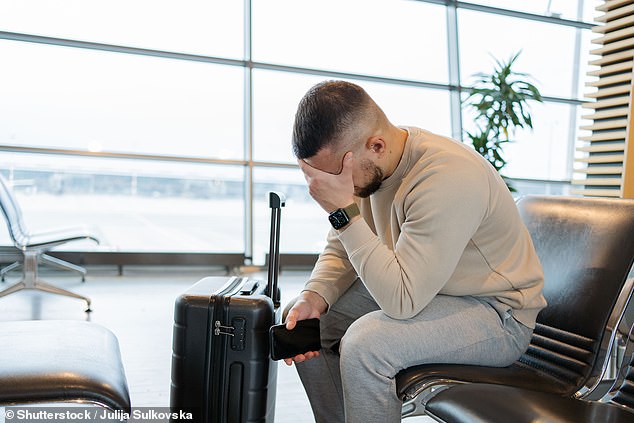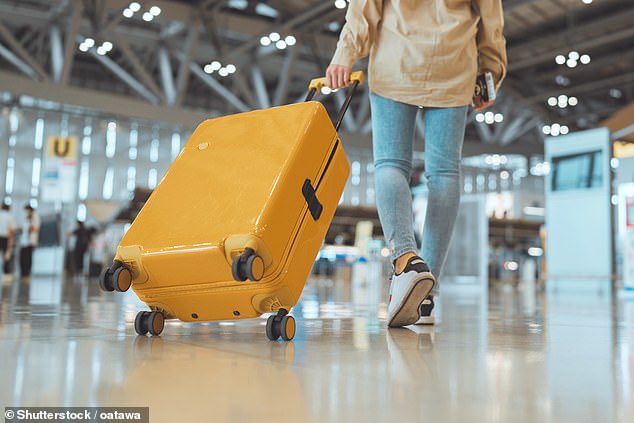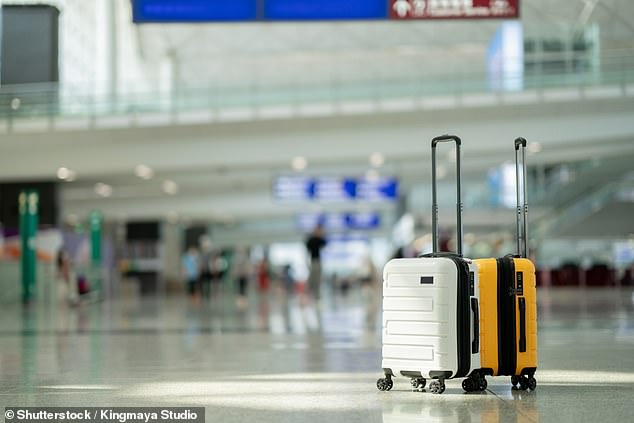With the summer holidays in full swing and millions of Brits preparing to head away, there’s certain scams tourists keep on falling for.
From being overcharged in taxis to making bookings on websites that aren’t legit, travellers overseas are often swindled out of money during their trips.
Research conducted by Compare the Market has identified the top tricks to look out for, and calculated how much money is at risk.
The number one scam that keeps catching holidaymakers is overpriced taxi rides.
Almost a third (32 per cent) of travellers fall victim to being charged too much for a lift abroad.
Nearly £17 is lost per journey, on average, and it is recommended to book in advance, – through a hotel if possible – to avoid paying the top rate.
Another money-draining scam to look out for is street sellers attempting to entice tourists into purchasing fake or inflated products, which places second.
This can involve the trader insinuating the item is ‘free’ but once the tourist accepts it, demands money.

With the summer holidays in full swing and millions of Brits preparing to head away, there’s certain scams tourists keep on falling for

From being overcharged in taxis to making bookings on websites that aren’t legit, travellers overseas are often swindled out of money during their trips
Another example is selling products that claim to be real leather or silk, and not being legitimate.
Some 20 per cent of holiday-goers surveyed by Compare The Market admitted to falling for the trick, with an average of £17.39 lost each time.
The third most common issue is restaurants overcharging and inflating the final bill for a meal.
A fifth (18 per cent) of Brits surveyed say they have experienced this and 25% of those hit with an overpriced meal contested it and paid less,
However, 54 per cent ended up paying the full amount, and on average lost more £22.58 the last time it happened.
Another problem people have faced is fake booking websites swindling tourists out of cash and pretending to be real companies.
One in 10 (12 per cent) of holidaymakers have fallen victim to this trick, and have lost an average of £113.30.
Phishing scams also cause issues for travellers, ranking fifth, and 11 per cent of those surveyed admitted to clicking on a hoax email before their trip.

Research conducted by Compare The Market on 2,000 participants has identified the top tricks to look out for, and calculated how much money is at risk

The number one scam that keeps catching holidaymakers is overpriced taxi rides. Almost a third (32 per cent) of travellers fall victim to being charged too much for a lift abroad
It can involve a scammer pretending to be a hotel and requesting money from the recipient.
The common trick has cost tourists £75 on average.
While the sixth most common scam is money exchange tricks, which can happen when a tourist uses an unofficial money exchange service.
They can be hit with poor rates, short-changed from a vendor or have their card skimmed by an ATM.
One in ten of those surveyed admitted to falling victim to this, losing £28 on average.
Travel insurance expert Guy Anker urged holiday-goers to ‘remain vigilant’ during their travels.
He said: ‘With nearly one in three (30 per cent) Brits noting an uptick in the number of potential scams they’re coming across when travelling abroad, it’s more important than ever that holidaymakers remain vigilant to protect themselves against any potential losses.

Another money-draining scam to look out for is street sellers attempting to entice tourists into purchasing fake or inflated products, which places second
‘The traditional holiday scams are still coming up time and time again, be that overpaying for a taxi or paying inflated prices to street sellers in tourist hot spots.
‘The average amounts lost on these are generally smaller, while the amounts lost to phishing attempts and fake booking websites – though less common – are much larger, with some unlucky travellers claiming to have lost thousands.
‘There are ways you can protect yourself against travel-related purchases such as paying on a credit card if you can, as it may offer additional protection if something goes wrong with a purchase.
‘Travel insurance won’t typically cover online fraud, but it is still highly important as it could cover a multitude of other issues.’
